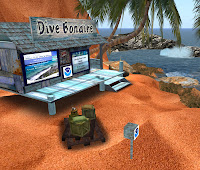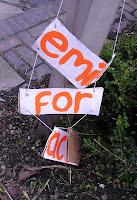
The IFLA Information Literacy Section is organising a satellite meeting at the University of Gothenburg, Gothenburg, Sweden August 8-9, 2010 in collaboration with Gothenburg University, called Information literacy: context, community, culture. It will consist of a networking event on the evening of Sunday 8 August and a full day programme on 9 August. The morning will consist of formal presentations, and this call is for papers for this morning of formal presentations. Deadline for proposals is 21st April.
Key aims of the event are:
- To understand the different meanings that information literacy has in different cultures, contexts and communities
- To learn about some of the ways in which we can get to know, and meet, these different information literacy needs
- To give delegates opportunity to reflect on what matters about information literacy to them and think about they might apply what they have learnt to their own personal and work context
Note that the afternoon will consist of an “unconference” in which delegates will be able to propose and pursue themes of particular interest to them. More information about this part of the event will be released shortly.
What we are looking for now
We are seeking proposals for presentations from people who have:
1) Investigated information literacy in specific contexts, communities and cultures. This might have meant investigating what information literacy means for a specific group or community, or having explored what their information literacy needs were. Presenters should make it clear what the context and goals were, and how the investigation was carried out.(Examples: a) a public library working with a local business community, through consultation and focus groups, to find out what their information needs and behaviour are, to guide service policy and delivery; b) researching the conceptions of information literacy of schoolteachers, to support their development of information literacy teaching for their pupils; c) working with staff and students in a university class to find out their information literacy needs).
or / and
2) Developed interventions (activities, teaching, programmes etc.) based on their understanding of these contexts. Although the emphasis should be on the intervention, it should be clear how it is tailored to the needs of the specific group / community (e.g. based on previous investigations, or in enabling the group/community to collaborate in designing the intervention).
In both cases, 1) and 2), ideally, but not necessarily, we are looking for initiatives that were developed in a collaborative or participative way with the community or group in question. Incorporation of the “voices” of the community (e.g. through quotation, video) are welcomed.
Presentations will be no more than 30 minutes in duration
The language of the meeting is English.
Timetable for submissions
1) Proposals must be in by 21st April 2010, submitted via email to il.satellite2010@googlemail.com
Proposals for papers must include: Title; Abstract of 250 words; Author(s) contact information (name, full address, phone, fax, email, etc) and affiliation.
2) Successful presenters will be notified by 10th May 2010
3) Speakers will be asked to provide an extended abstract of circa 800 words, in English, and a short author biography by 6th June 2010, for inclusion on the event’s website.
4) Speakers will be asked to provide copies of their presentations by 31 July 2010
Please note
All expenses incurred for attending this event are the responsibility of the authors whose papers are accepted. Authors/presenters are expected to attend the event and present their papers in person. Reminder: proposals should be sent to: il.satellite2010@googlemail.com
Photo by Sheila Webber: Crow, March 2010
 I'm not at LILAC (the UK information literacy conference, 29-31 March) this year (actually I'm "on holiday" at the moment) - but you can follow some of what is going on, via Twitter http://twitter.com/search?q=%23lilac2010 and various bloggers e.g. http://library.hud.ac.uk/blogs/il/, http://thesheckspot.blogspot.com/
I'm not at LILAC (the UK information literacy conference, 29-31 March) this year (actually I'm "on holiday" at the moment) - but you can follow some of what is going on, via Twitter http://twitter.com/search?q=%23lilac2010 and various bloggers e.g. http://library.hud.ac.uk/blogs/il/, http://thesheckspot.blogspot.com/



















